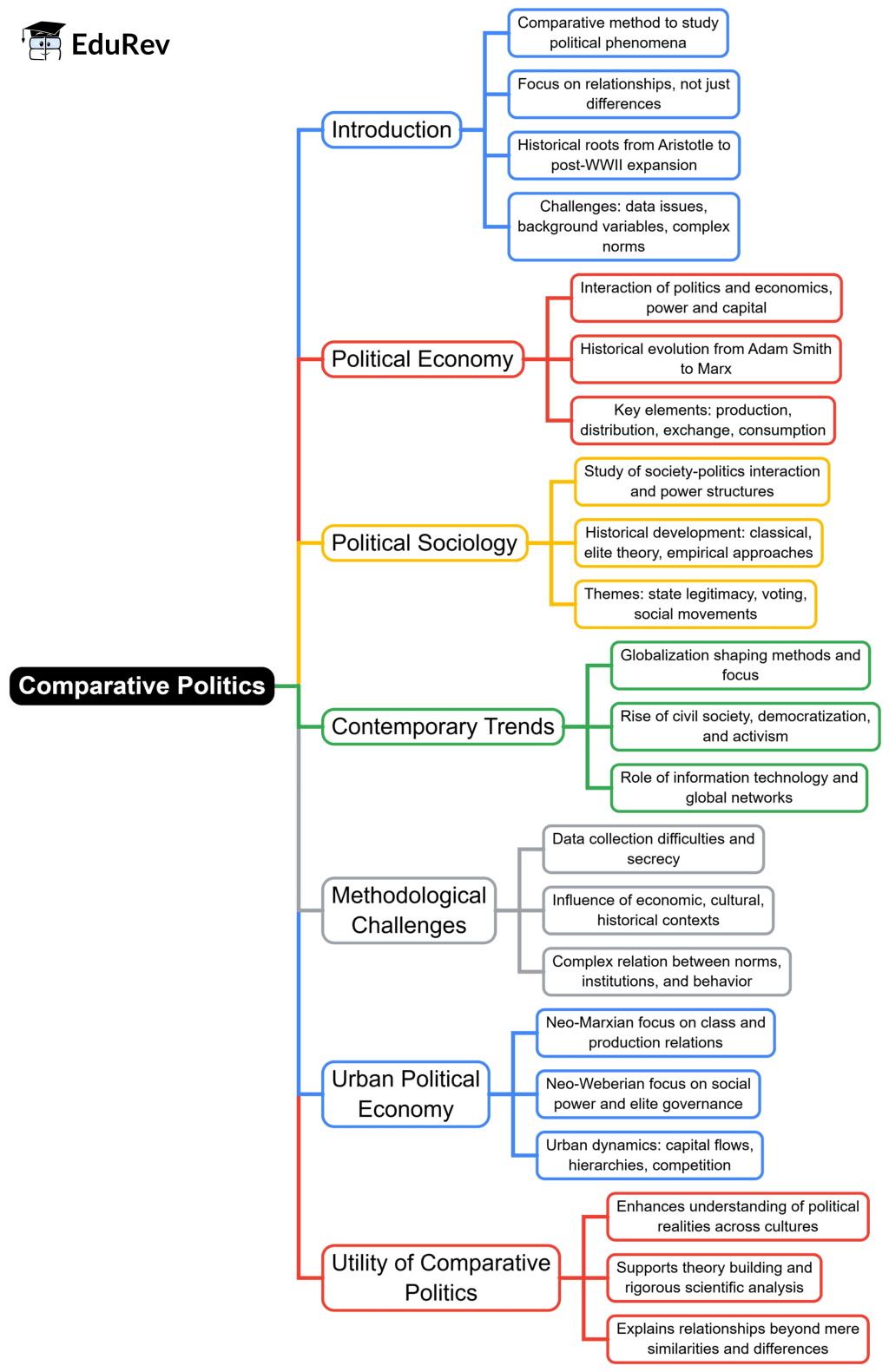UPSC Exam > UPSC Notes > PSIR Optional for UPSC > Mind Map: Comparative Politics
Mind Map: Comparative Politics | PSIR Optional for UPSC PDF Download

The document Mind Map: Comparative Politics | PSIR Optional for UPSC is a part of the UPSC Course PSIR Optional for UPSC.
All you need of UPSC at this link: UPSC
|
173 videos|574 docs|148 tests
|
FAQs on Mind Map: Comparative Politics - PSIR Optional for UPSC
| 1. What is comparative politics and why is it important for UPSC preparation? |  |
Ans. Comparative politics is a subfield of political science that studies and analyzes political systems, institutions, processes, and behavior across different countries. It is important for UPSC preparation because it helps candidates understand the political dynamics of various nations, enabling them to analyze and compare different political frameworks, ideologies, and governance models, which is crucial for answering questions in the General Studies papers.
| 2. How can one effectively study comparative politics for the UPSC exam? |  |
Ans. Effective study of comparative politics for the UPSC exam can be achieved through a combination of reading standard textbooks, following current affairs, analyzing case studies, and engaging in discussions. Candidates should focus on understanding key concepts, political theories, and the political history of various countries, as well as practicing answer writing to enhance analytical skills.
| 3. What are some key themes or topics to focus on in comparative politics for the UPSC exam? |  |
Ans. Some key themes to focus on include political systems (democracies, autocracies), political culture, public policy, governance structures, electoral systems, political parties, and comparative analysis of major political ideologies. Candidates should also pay attention to the impact of globalization on national politics and the role of international organizations.
| 4. How does one integrate current affairs into the study of comparative politics for UPSC? |  |
Ans. Integrating current affairs into the study of comparative politics involves regularly following news articles, journals, and reports related to political developments around the world. Candidates should analyze how current events reflect or challenge theoretical concepts in comparative politics, and relate these observations to their understanding of political systems and governance.
| 5. What are some common mistakes to avoid while preparing for comparative politics in the UPSC exam? |  |
Ans. Common mistakes to avoid include neglecting to connect theoretical knowledge with practical examples, underestimating the importance of current affairs, and failing to practice answer writing. Additionally, candidates should avoid rote memorization without understanding the underlying concepts, as well as not allocating enough time for revision and practice in comparative politics.
Related Searches
















